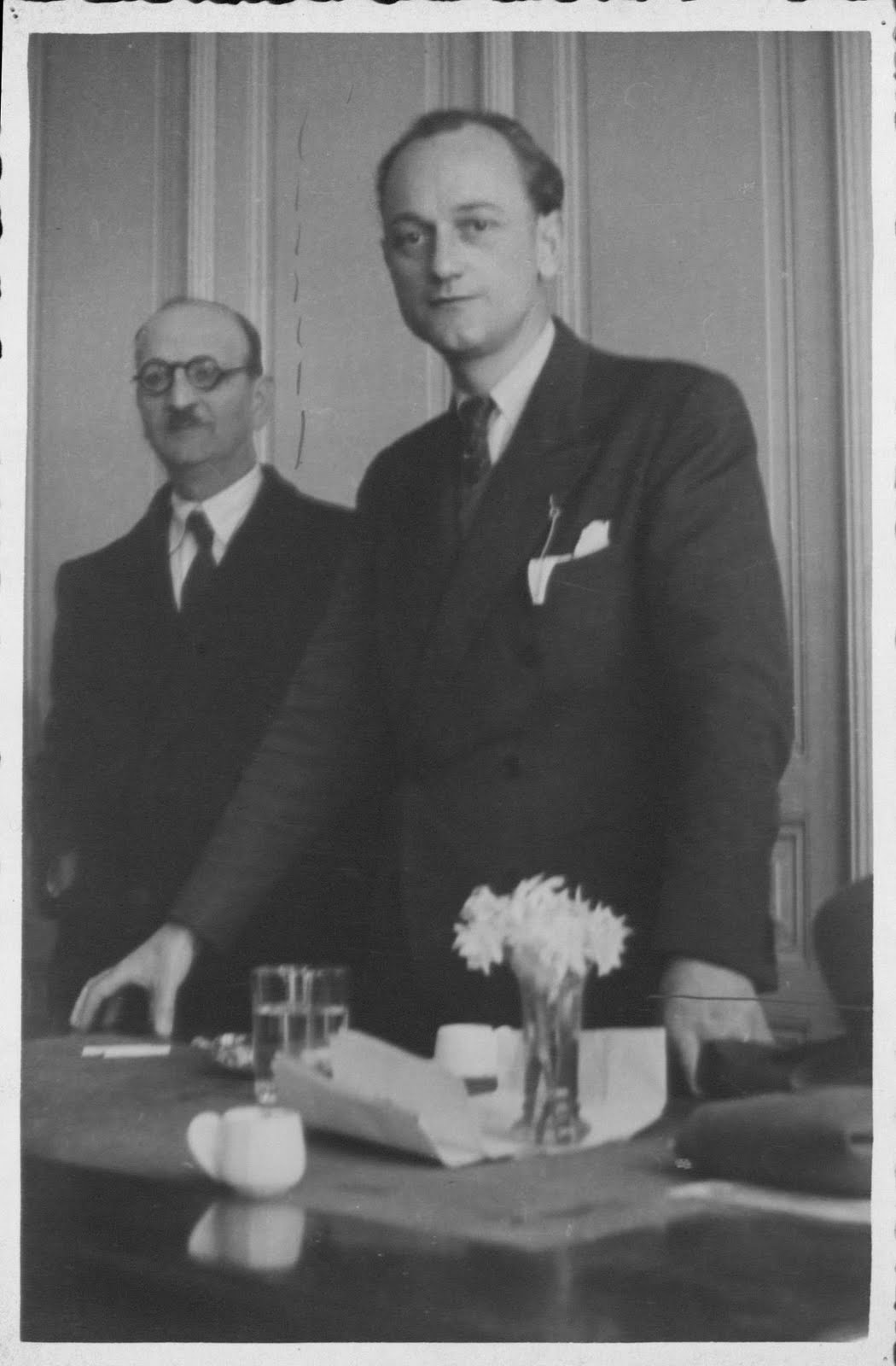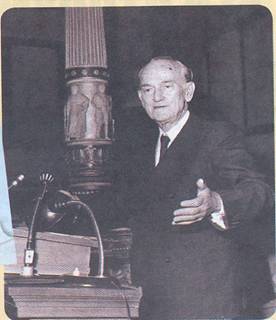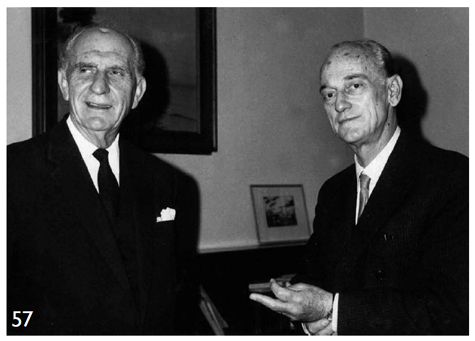<Back to Index>
- Prime Minister of Greece Panagiotis Kanellopoulos (Παναγιώτης Κανελλόπουλος), 1902
- United States Ambassador to Greece William Phillips Talbot, 1915
PAGE SPONSOR



Panagiotis Kanellopoulos or Panayotis Kanellopoulos (Greek: Παναγιώτης Κανελλόπουλος; Patras, Achaea, 13 December 1902 – Athens, 11 September 1986) was a distinguished Greek politician and Prime Minister of Greece. He was the Prime Minister of Greece deposed by the Greek military junta of 1967 - 1974.
He studied law in Athens, Heidelberg and Munich. Kanellopoulos was an intellectual and author of books about politics, law, sociology, philosophy, history etc. His book "I was born in 1402" received a literary award from the Academy of Athens.
He served as Minister of Defense under the Tsouderos government in exile during World War II. In November 1945, he served as Prime Minister for a short period of time. After the war he became Minister for Reconstruction under Georgios Papandreou in a national unity government. He also served in other ministerial posts under Alexandros Diomidis, Constantine Karamanlis and others till 1967 when he became Prime Minister.
On 9 July 1961 Panagiotis Kanellopoulos, as Deputy Prime Minister in Konstantinos Karamanlis' government, and German Vice - Chancellor Ludwig Erhard signed the protocols of Greece's Treaty of Association with the European Economic Community (EEC). The signing ceremony in Athens was attended by top government officials from the six - member group consisting of Germany, France, Italy, Belgium, Luxemburg and the Netherlands. The six member group was the early precursor of today's European Union. Economy Minister Aristidis Protopapadakis and Foreign Minister Evangelos Averoff were also present at the ceremony as well as Prime Minister Konstantinos Karamanlis.
His niece, Amalia married Karamanlis. In 1963 he succeeded Karamanlis as leader of the National Radical Union party (ERE).
He was the last Prime Minister (acting as a caretaker for the
scheduled for 28 May National Parliamentary Elections) prior to the coup d'état of 21 April 1967. He was
placed under house arrest for the next seven years. During the events
leading to the metapolitefsi (the period of political transition
following the fall of the military junta), Phaedon Gizikis actively
considered giving Kanellopoulos the mandate to form a transitional
government. After the metapolitefsi Kanellopoulos resumed his
parliamentary career as a member of the New Democracy party. He declined
offers to become President of Greece when the post was offered to him
during the metapolitefsi.


William Phillips Talbot (June 7, 1915 – October 1, 2010) was a United States Ambassador to Greece (1965 - 69) and, at his death, member of the American Academy of Diplomacy, the Council of American Ambassadors and the Council on Foreign Relations.
Talbot was born in Pittsburgh, Pennsylvania, and served in the United States Navy during World War II.
After graduating from University of Illinois in 1936, Talbot started as a reporter for the Chicago Daily News,
where he remained from 1936 - 38. In 1939, having been turned down for a
foreign correspondent position, he left the Chicago Daily News to take a
position with the Institute of Current World Affairs in India where he reported on the Indian independence movement. The Phillips Talbot Fellowship was named in his honor and is awarded yearly by the Institute to promising young journalists.
Talbot was the United States Assistant Secretary of State for Near Eastern and South Asian affairs from 1961 - 65 during the Kennedy and Johnson administrations.
Talbot served as President of Asia Society from 1970 - 1982 and was awarded the Padma Shri in March 2002 for his efforts in fomenting peace between India and America during his tenure as President.